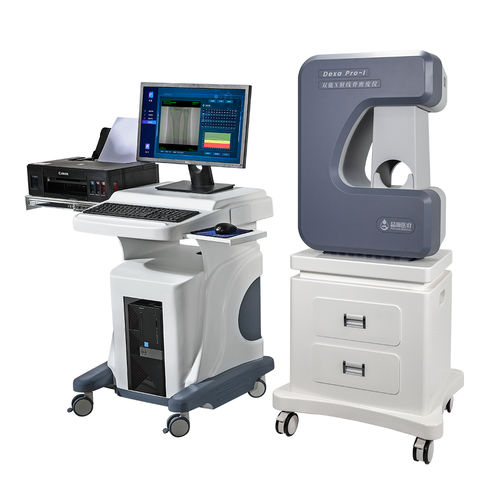
#Industry News
Physical examination found "bone density" low? Don't panic. Look over here!
Dual-energy X-ray (DXA bone mineral density), which is the current "gold standard" for diagnosing osteoporosis.
What is bone density?
First of all, what is bone mineral density? Bone mineral density refers to the amount of bone contained per unit area or unit volume, which is simply an important indicator of bone strength.
Knowing your bone density status is crucial to preventing and treating bone-related diseases.
Bone density examination
Common bone mineral density tests are as follows:
1. Dual-energy X-ray (DXA bone mineral density), which is the current "gold standard" for diagnosing osteoporosis. The most prone fracture sites such as lumbar spine and femoral neck were mainly measured.
2. Ultrasound bone mineral density is the most common screening method for bone mineral density in major physical examination centers. If bone loss or osteoporosis is indicated, further examination is generally recommended.
Criteria for bone density
In clinical practice, due to different detectors, dual-energy X-ray and ultrasonic bone mineral density detection usually use T value to determine whether bone mineral density is normal.
Prevention and treatment of bone loss/osteoporosis
If bone mass loss or osteoporosis is found, we can start from the following aspects:
Calcium supplement
Calcium is a major component of bones and teeth.
Calcium supplementation is one of the most direct and effective means of increasing bone density/delaying bone loss.
- First of all, we should pay attention to food calcium supplements, such as more intake of milk, dairy products, green vegetables (spinach, mustard greens, beets, etc., need to boil water before eating), tofu, eggs, etc.
Some foods have a higher calcium content than milk, but considering the absorption rate, eating habits and other factors, it is most convenient to protect milk products.
Since more than 90% of the daily intake of calcium in China is insufficient, the appropriate use of dietary supplements is also a good choice.
- Calcium supplements are mainly divided into organic calcium and inorganic calcium.
Organic calcium such as calcium citrate, calcium citrate, calcium acetate, solubility is good, but the calcium content is low.
(Organic calcium absorption does not require the participation of stomach acid, suitable for gastrointestinal problems, it is generally recommended to take with meals)
Inorganic calcium such as calcium carbonate, calcium phosphate, calcium chloride, calcium content is high, but most of the solubility is low, and gastrointestinal irritation is relatively large, it is recommended to eat with meals.
- At the same time, it should be noted that do not take too many calcium tablets at once, divided into time periods (such as 2 tablets a day, but one in the morning and evening) to eat can improve the absorption and utilization rate.
- For patients with kidney stones and osteoporosis, the treatment needs comprehensive consideration. It is recommended to go to the hospital for comprehensive metabolic assessment to find out the cause of stone formation, and then decide the calcium supplement program.






